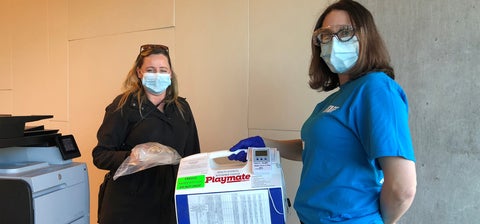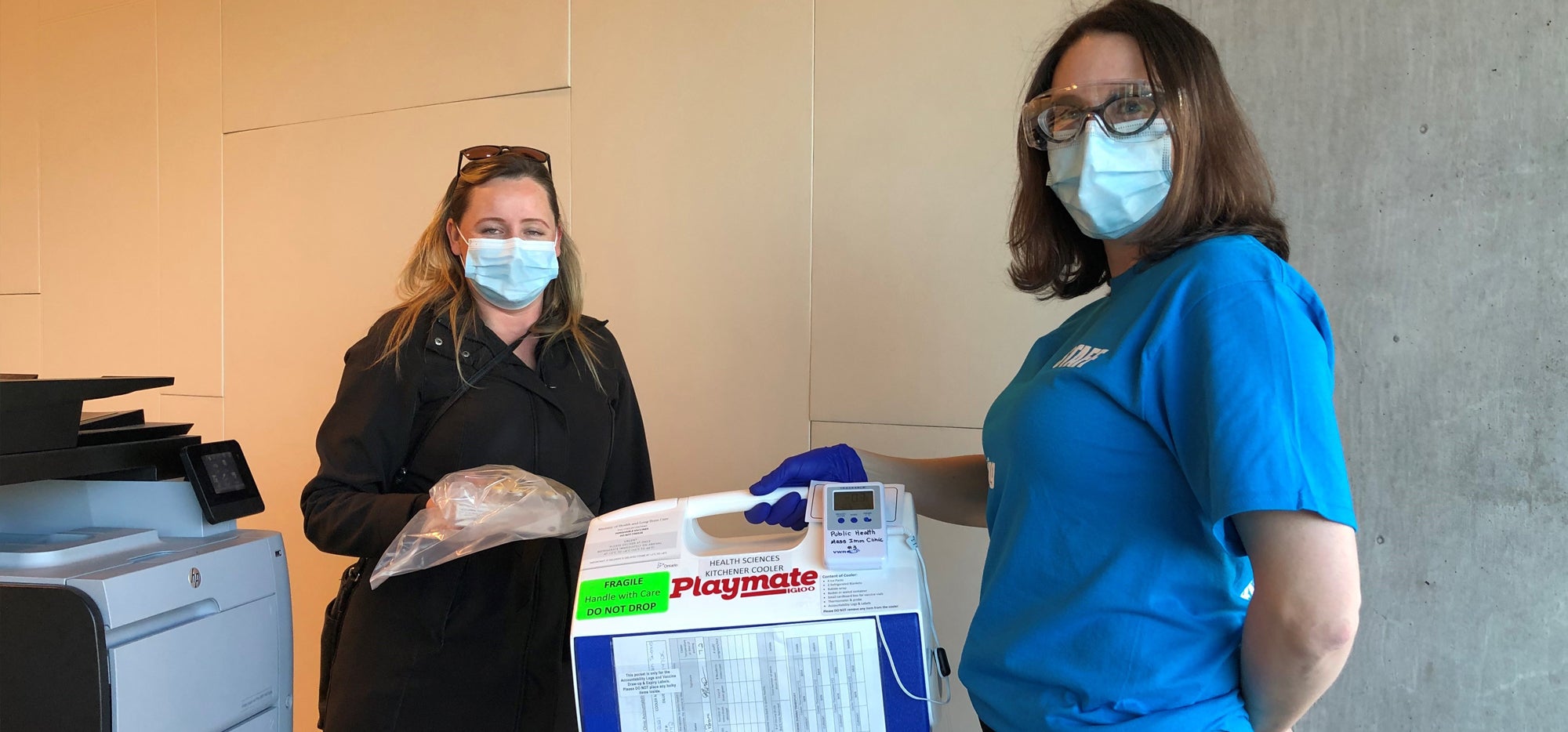
Pharmacy prof supports logistics and training for vaccine clinic

Brett Barrett was the person who received the very first delivery of Pfizer vaccines at the Region of Waterloo COVID-19 Vaccine Clinic located at the Health Sciences Campus of the University of Waterloo.
“When I received that delivery, I was stressed,” she says. “It was the first day the clinic was running. We had a large team and recently established policies and procedures. I wanted everything to go well.”
And go well it did. This clinic, run by the Centre for Family Medicine with the support of many partners, saw its first patient Keith on March 15. Keith got his shot, and since then the clinic has administered over 10,000 doses to Waterloo Region residents.
“The clinic is such a positive environment to work in,” says Barrett. “We have many different professionals working closely together and patients who are very appreciative both of receiving the vaccine and of how smoothly our clinic is run.”
Barrett works as a pharmacist supervisor at the clinic, leads training of pharmacy staff, and is also a faculty member at the School of Pharmacy. But she’s been involved with the clinic since before its doors opened. Barrett has extensive experience as a Grand River Hospital pharmacist where she developed numerous policies and procedures, and so she was tasked with designing the clinic’s technical workflow and logistics. It’s a complicated process, and one that’s made even tricker due to the Pfizer vaccine.
“The Pfizer vaccine has unique properties that make it different from anything I’ve worked with before,” she says. “We had to take into account a strict preparation process and the delicate physical nature of the vaccine itself when planning how to run our clinic optimally.”
In the clinic, one group prepares the injections for use and another administers the shots to patients. The group preparing the needles is typically overseen by a pharmacist and staffed by pharmacists, pharmacy technicians and pharmacy students.
“The Pfizer vaccine is very viscous, and we work very hard to get those six doses out of every vial,” she says. “The stability requirements mean that we are watching our schedule carefully to avoid wasting any vaccine. The Pfizer vaccine is also quite fragile which means that some of the normal practices with injection preparation – such as tapping the needle to get rid of air bubbles – can’t be used.”
Pfizer’s uniqueness means staff training is especially important. The whole team is conscious of their role as stewards of this valuable resource, and Barrett leads training for staff in the preparation group.
“The team members who do the injecting have been so appreciative of our group,” says Brett. “We all know Pfizer is tricky to work with, and they’re sure to check in with us and make sure we feel supported.”
As the clinic continues to run, the team is getting even more efficient, with more than 600 vaccines administered some days. That injections-a-day number fluctuates based on the amount of Pfizer vaccine available in the Region.
The clinic is staffed by health care professionals from many local health teams as well as the School of Pharmacy and is supported by many volunteers. For Barrett, who left Grand River when she became a full-time faculty member at the School, it’s been a refreshing return to an interprofessional work environment.
“For some of our staff who work in family doctor offices or community pharmacies, the clinic has provided an exciting space to work shoulder to shoulder with colleagues from other professions you might not otherwise interact with in person,” she says.
Everyone who visits the clinic, both citizens in for their shot and staff and volunteers, appreciate the positive environment.
“When I got my own vaccine at Grand River prior to the clinic opening, I was so focused on their operations. How was their clinic organized? What could we learn from their process for opening our own?” Brett says. “It was only days later that I realized I was feeling hopeful for the first time in since the pandemic started. I realized how heavy that was, always being afraid, and now I’m both relieved and proud to contribute to the solution by supporting the clinic.”